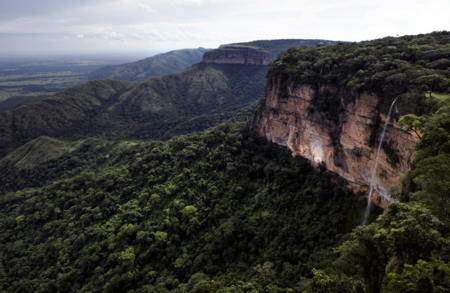21 September 2023

September 21, Milan: World Wildlife Fund (WWF) will join as partner of the Deforestation-Free Call to Action for Leather, alongside Textile Exchange and Leather Working Group (LWG).
The Deforestation-Free Call to Action for Leather is a cross-sector initiative that calls on brands and retailers to commit to sourcing all their bovine leather from deforestation-free supply chains by 2030 or earlier. Its intent is to provide a clear roadmap for brands towards sourcing from deforestation/conversion free supply chains and providing tools and guidance to support them along the way. WWF has previously had an active role as part of the NGO advisory group, along with National Wildlife Federation (NWF), and the Accountability Framework initiative (AFi), - offering valuable input into the workplan and tool development.
In a progressive step for the Call to Action, WWF in its new role as partner will work actively with signatories towards developing deforestation/conversion free supply chains. That will include offering signatories further in-depth expert guidance, supporting collaborative approaches and helping them to set meaningful expectations on their journey towards helping to galvanise efforts toward ending the deforestation and conversion of natural ecosystems linked to cattle farming.
Brands that have already signed on to the Deforestation-Free Call to Action for Leather, including All Saints, Adidas, American Eagle, Arezzo, BMW, Capri Holdings, Everlane, H&M, Ice Bugs, IKKS, Kering, MANGO, M&S, Puma, Range Revolution, Reformation, RM Williams, Roots, and Tapestry, will report annually through the Textile Exchange Materials Benchmark.
What is expected of signatory brands?
- Set leather sourcing requirements: Work to all levels of farming and with their supply chain to set and cascade requirements for deforestation and conversion-free sourcing.
- Set and meet supply chain targets: Set and meet targets for mapping supply chains to the slaughterhouse level and identify the associated risk levels.
- Make investments: Set and meet financial investment targets that increase the supply of traceable, deforestation and conversion-free leather, particularly at the farm level.
- Implement traceability: Use a traceability system to ensure credible sourcing of verified deforestation and conversion-free leather.
- Human rights: Commit to respecting human rights across the entire bovine leather supply chain, including recognizing and protecting the rights of Indigenous peoples and local communities.
- Report progress: Detail steps taken along the Deforestation-Free Call to Action for Leather roadmap through Textile Exchange’s Materials Benchmark (and the LWG Sourcing Declaration, if applicable) on an annual basis.
The goals of the Deforestation-Free Call to Action for Leather:
- Leverage the size and power of consumer-facing leather brands and align their action to catalyze change in leather value chains.
- Ensure that the responsibility to invest in the protection of forests and ecosystems is shared more equitably across the supply chain, as well as between majority and minority world countries.
- Increase the availability of verified deforestation and conversion-free cattle farms that can supply hides as a by-product to the leather industry.
- Provide better visibility in long and complex supply chains, improving communication between brands and their supply chain partners and rewarding deforestation and conversion-free practices.
- Improve transparency through reporting on the collective progress being made by participating brands.

